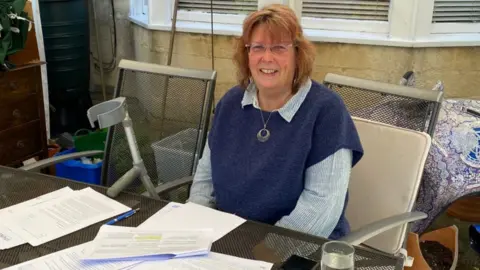Bath counter-terror plan 'will affect disabled access'
 Lynda Lloyd
Lynda LloydA disabled resident says counter-terror measures being considered for a city centre will "unfairly" affect disabled access to the area.
Measures could see road access limited in Bath city centre to prevent vehicles being used as weapons.
But resident Lynda Lloyd said the plans would restrict her access to the shops, cafes and cultural places.
The local council said it would consider an independent accessibility study.
The counter-terror security proposal would see all parking - including for blue badge holders - removed from a secure zone.
The proposals also include the use of moving bollards.
 Getty Images
Getty ImagesMs Lloyd said: "I'm not the only person who thought, if I can't access what I came to live in Bath for, its culture, its beautiful buildings. If I cant get there and to the cafes and restaurants then what's the point in living here?
"I used to know that I could drive to the local theatre and park in Westgate Street. I used to know that I could park near Bath College and now I can't know any of these things."
Ellie Leiper, landlady of The Grapes pub in Bath, said the security measures were not "entirely appropriate", especially for people who were disabled like her dad.
She said: "The majority of disabled people prefer the roads, they avoid the pavements because the pavements are all over the shop.
"The roads are a ready-made example of how they can travel safely on even surfaces."
About 200 people have responded to a public consultation on the plans.
In the responses one residents' association said vulnerable people could be "trapped".
The council and police said the measures were proportionate to the threat.
Manda Rigby, cabinet member for transport at Bath and North East Somerset Council, said: "We now have the benefit of a detailed independent accessibility study.
"Taking all this into account, we need more time to consider this balance so we can better meet the needs of the public.
"For this reason, a report on city centre security will be coming to a later cabinet and not in June as we had anticipated."
